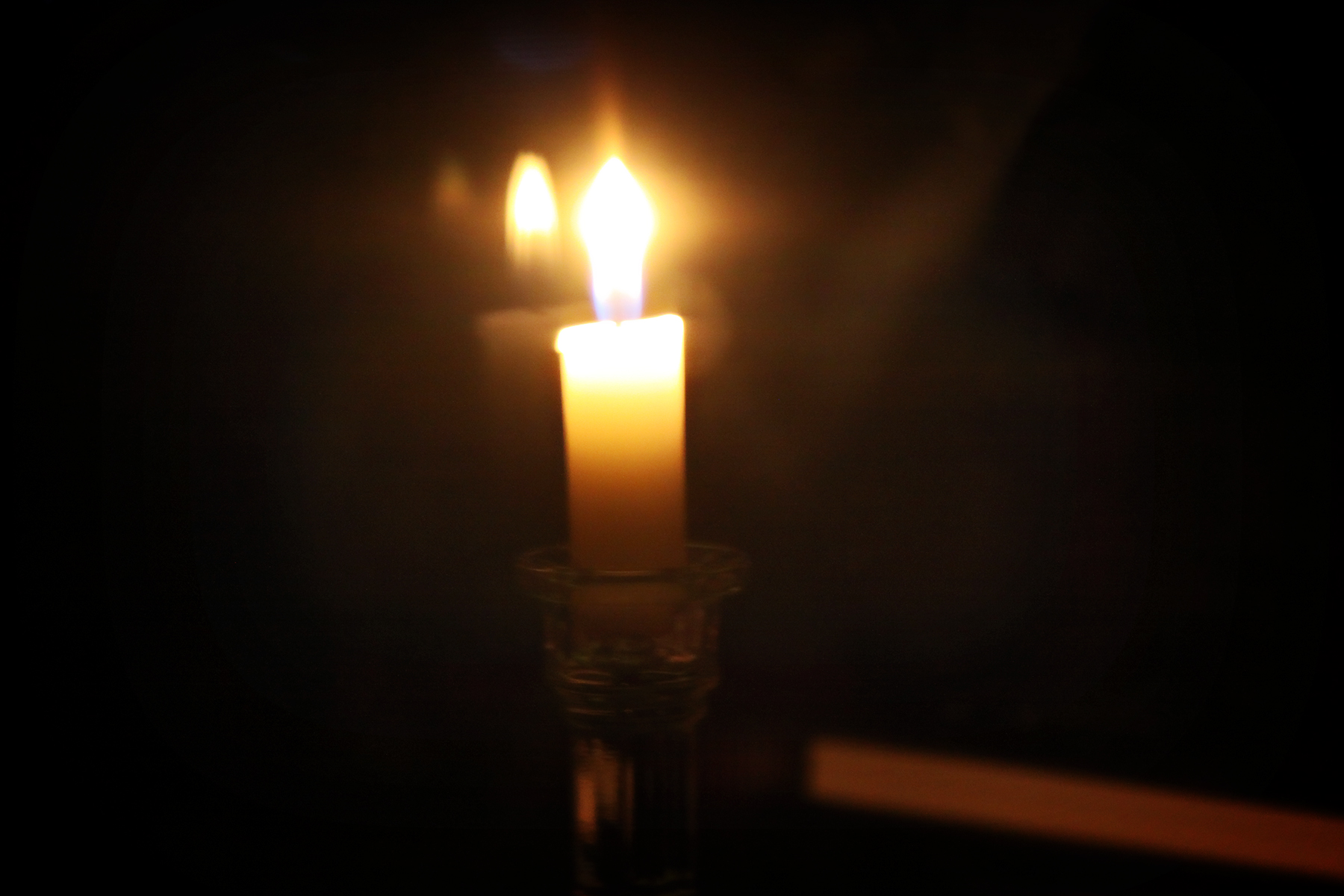Christmas is one of the high holy days of the church year, and Christmastide (the season of Christmas) is one of the most joyful seasons of the year, right up there with Easter. But for many people, Christmas is fraught and difficult. It is, for any number of reasons, a season of sorrow. And that is wholly appropriate, for in the circle of the church year, space for sorrow and sadness are woven into the very fabric of this deeply glad and joyful season.
It is true that for the 12 days of Christmas we celebrate the joyful news that Christ is born, that God is with us, that God became one of us. But it is also true that Christmas is not a rollicking season of unceasing merry-making and revelry from Christmas Day to the festival of Twelfth Night. Our forebears in faith were not content with one-note seasons. They tended to trouble the waters. They insisted on truth.
On December 25, we celebrate the birth of the Messiah and gaze with wonder at this Child wrapped in swaddling clothes and lying in a manger.
December 26 is the feast of St. Stephen, the first Christian martyr.
December 27 is the feast of St. John the Evangelist, an exile and prisoner for his testimony to Christ Jesus.
December 28 is the feast of the Holy Innocents, the children slaughtered by Herod in his mad bloodthirsty zeal to protect his precarious throne.
Our forebears in faith were wiser than we. They were certainly better psychologists. They refused to choose between joy and sorrow and instead embraced both. They understood, profoundly, that we live between the Now and the Not-Yet.
Yes, Christ has come. Already come. He is already laid in the manger, adored by shepherds and magi and His own mother. He is already nailed to the cross, wounded for our transgressions, bruised for our iniquities. He is already risen from the grave, gloriously triumphant over death and evil and sin and all that would separate us from Him.
That is true, even now.
And, it is also true that death and evil and sin are fighting hard. They know they’re already defeated, and they’re trying to drag as many of us down with them as they can. They want to steal our hope, swipe our joy, snuff out our light.
They want to kill our faithful, exile our prophets, destroy our children. That is the world we live in, even as the Babe lies in the manger: refugees fleeing for their lives (just as He and His family did), bombings, shootings. And closer to home: cancer, estrangement, the missing face at the table never to be seen again in this life. Grief, loss, pain.
Those who followed in the footsteps of Jesus, in the footsteps of Stephen and John, knew suffering. Their world was one of violence and persecution, too. In their world, children died at the hands of greedy tyrants. In their world, military might made right. They knew fear and grief and pain and loss, possibly more deeply and certainly more immediately than we do, mediated as so much of our world is by a screen. They had no screens. They had a bloody God on a Godforsaken cross, right before their eyes.
They knew suffering.
And they knew Jesus.
And they held the two together. They said, we will eat and drink and be merry and we will remember the martyrs, the exiles, the prisoners, the innocents. They said, we will lift up our voices in song, in praise, in shouts of glory, and we will grieve the deaths of those we love, the absence of those long lost. They said, grief is part of our praise, part of our celebration, because it is part of us, and we bring our whole selves before our God in worship. They said, we will feast and remember—remember the joy, remember the loss. But we will feast.
They knew, as we seem to have forgotten, that life is woven whole, that Christmas is a celebration of God made human, and the fullness of all that means. That Baby would grow to a Boy and then a Man, and He would know all that we know—joy and sorrow, love and loss, confusion and grief and horror—for He was fully human.
Our forebears knew that death and destruction had been defeated when Jesus submitted to death and destruction. They knew, the evidence of the world around them notwithstanding, that Heaven had broken through, that Life was on the loose, and that all the forces of hell could not prevail against Him.
They knew that was the world they inhabited, and they wanted us to know it, too. In their wisdom, they gave us the 12 days of Christmas, with the feasts of St. Stephen, St. John, and the Innocents right at the start to remind us: this is part of the story, but it is not the end of the story.
The juxtaposition of these feast days with the season of Christmas gives us permission to live right where we are. So we have permission to go ahead and grieve at Christmas, if that’s what our hearts need, to let the season hold us in its contrasts of light and dark, celebration and suffering. The promise of Christmas is that Jesus is with us in the midst of our sadness and sorrow, in the midst of our horror at a world gone mad. He came to be light in the dark and to show us the way Home.
Christmas is a season of joy. But often it is the subdued joy of exiles who live in darkness and the shadow of death who yet know that, one day, we will go home.
We light our candles and sing our carols in the face of all that is grievous and ugly and evil. We join hands around the table and say grace and dig in to the feast and laugh and cry and remember those who are no longer with us and cling to the hope of that Heavenly Table of which ours is an icon, a foretaste, that Table where all our lost loved ones are even now feasting with the Risen King of Glory, where one day we will join them in the happiest reunion this world has ever known.
This Christmas, wherever you find yourself—whether you’re riding high at the end of a good year or bowed low in the midst of grief or somewhere in between—may you know that the coming kingdom is already here. It started when a young girl said yes to God’s invitation to join Him in the greatest rescue operation the world has ever known. And you participate in it! Your Christmas feast, the Christmas carols you sing, that pan of cookies for the neighbors, those cards for far-flung loved ones, your head flung back in laughter or bowed down in grief, your arms flung wide in embrace, even your heart’s yearning and breaking—all these are kingdom acts. They proclaim a defiant joy that refuses to be drowned by your newsfeed, a rebellious hope that insists this is not the way things were meant to be, a stubborn faith that clings to the promise that one day all things will be made new.
The kingdom has come. And it continues…in a mustard seed, a grain of yeast, a single lost son come Home.
In a lowly babe in a manger, a small family fleeing from a king, a young man nailed to a cross, an empty tomb.
In the candle you light at your table tonight. And tomorrow night. And the night after that.
The featured image titled “Candle of Waiting” is (c) Lancia E. Smith, and is used with her glad permission for The Cultivating Project.
K. C. Ireton is a multi-published author of both fiction and nonfiction books, including The Circle of Seasons: Meeting God in the Church Year and A Yellow Wood and Other Stories. She and her daughter, Jane, co-host Lantern Hill, a podcast for people who love books, children, and God. Visit kcireton.com to learn more about her work and download the first two chapters of her most recent book. Or visit her on Substack at kcireton.substack.com, where she publishes stories and liturgies.
Leave a Reply
A Field Guide to Cultivating ~ Essentials to Cultivating a Whole Life, Rooted in Christ, and Flourishing in Fellowship
Enjoy our gift to you as our Welcome to Cultivating! Discover the purpose of The Cultivating Project, and how you might find a "What, you too?" experience here with this fellowship of makers!


I just want to say this really blessed me. Thank you!
K.C., I loved this piece, and I’m feeling some of these same things this season. I’m going to a funeral tomorrow, in fact. Thank you for your words. I loved this quote:
“They said, grief is part of our praise, part of our celebration, because it is part of us, and we bring our whole selves before our God in worship.”